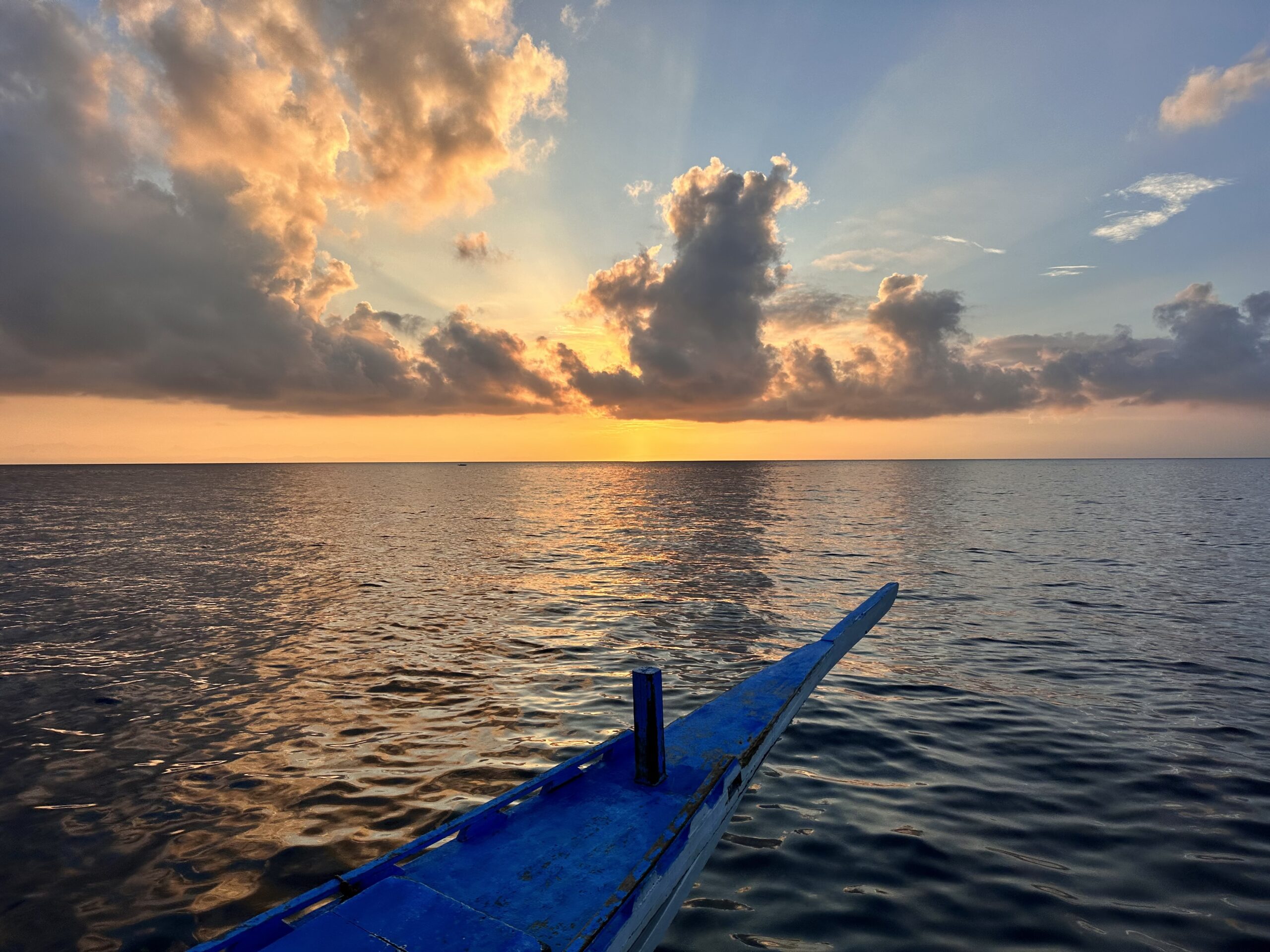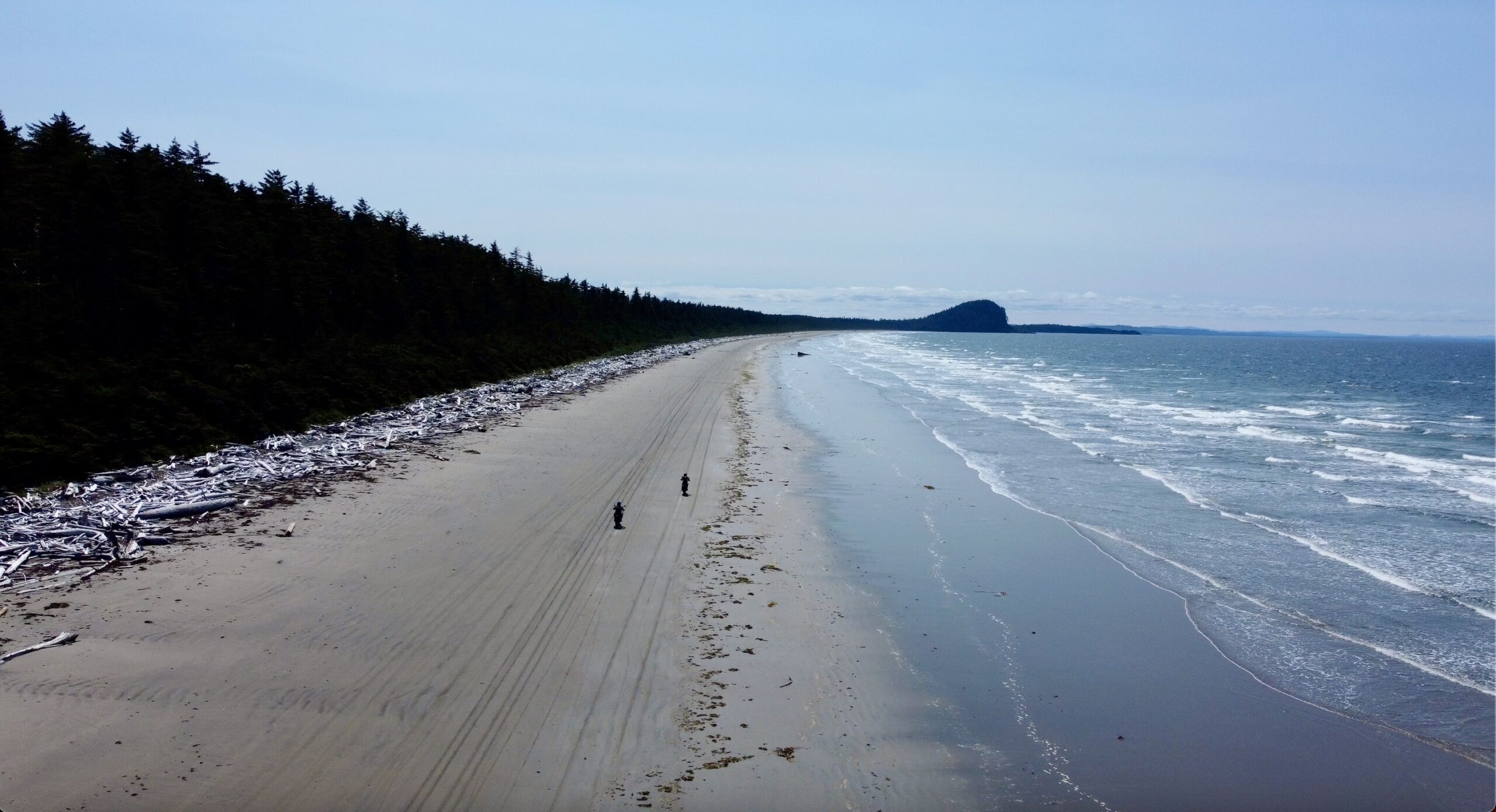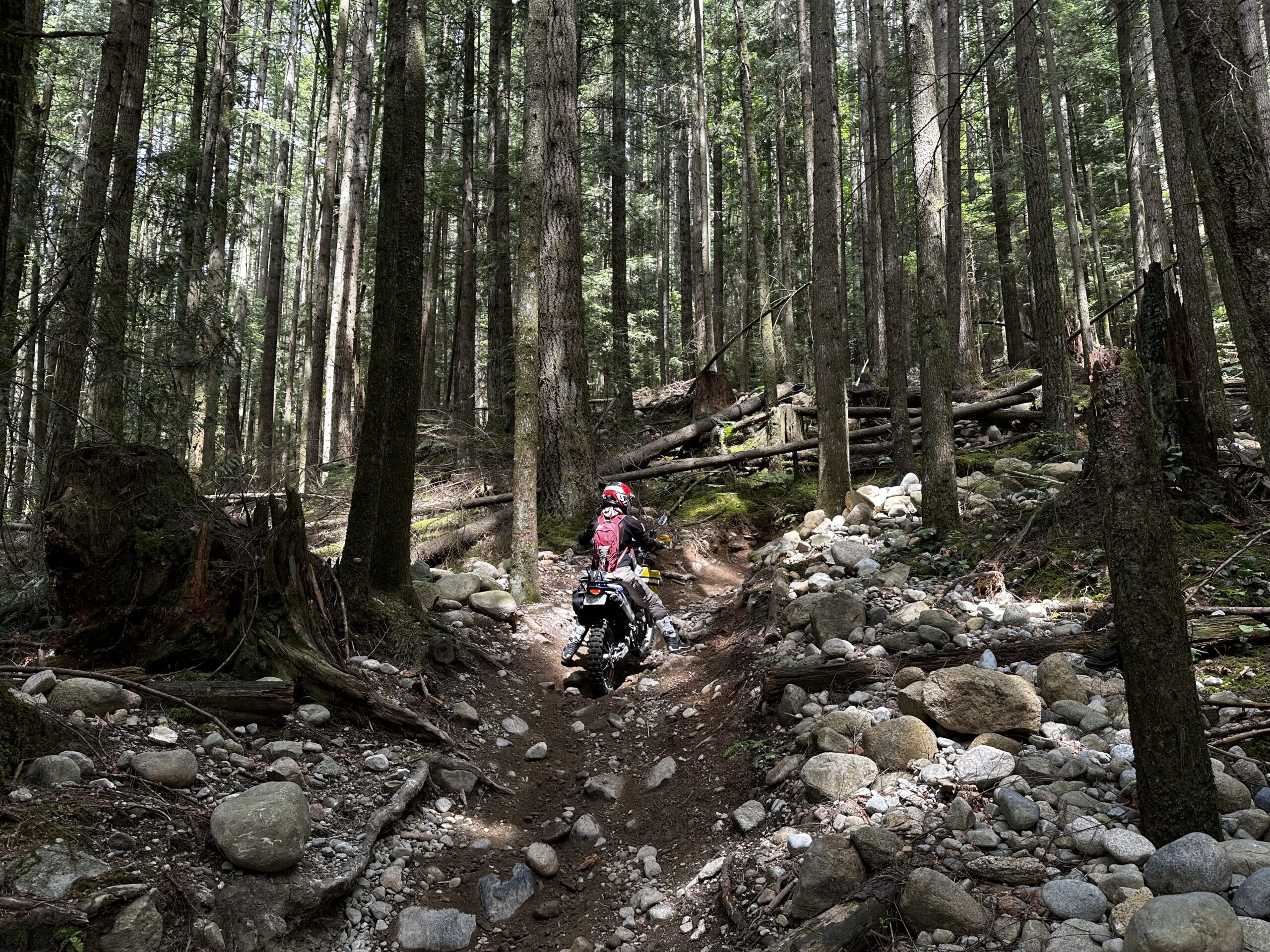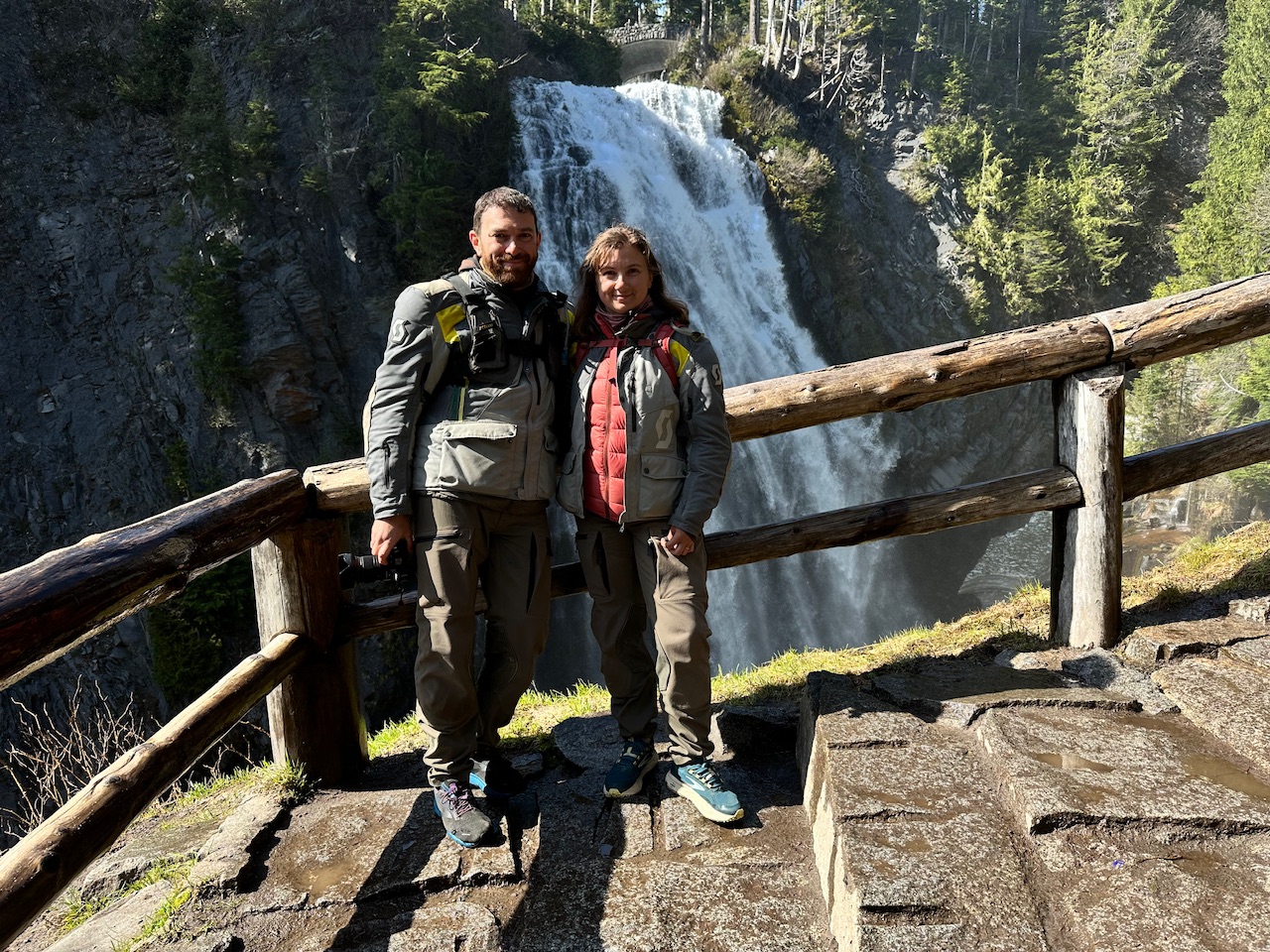Maya port is located at the end of the road, beyond that is just the sea. As the bus stopped, everyone disembarked and for the most part disappeared into various private vehicles or on foot. A portion of the passengers had the same intentions as us, to get onto a boat and reach the small island of Malapascua less than 10 km away.
It was not as simple as one might expect. It was late morning and the sun was already scorching, with humidity making it even harder to do anything. Everyone moved very slowly. From the bus stop, we traversed the exposed pier, reaching the spot where we had to get entry tickets to the island. They called it “eco tax” and at 120 pesos it included a receipt but nothing else in return. When I asked about the boat, the lady writing the receipt slowly rolled her eyes and pointed to a shaded shack nearby.
There were worn plastic chairs and a handful of other people waiting. It was a mix of foreign and Filipino tourists, with the latter clearly feeling most comfortable. It looked like not their first time here. There was a certain understanding about the expected price and departure process, but as time passed, I began to have doubts if anything would ever actually happen.
After spending time in Manila, Cebu City as well as beaches and ports in Palawan, I thought this place would have vendors selling food and cold drinks, but the pier was mostly deserted. The few people present were sweating, and slowly getting aggravated. Very, very slowly. Eventually someone came over and declared that because there were not enough passengers, the captain will only go ahead with the trip if everyone pays a little more than the typical price. The captive audience of the shack slowly looked at each other, shrugged their shoulders and nodded in agreement.
For a moment, I thought it was now only a matter of us getting the cash out of our pockets and heading onto the boat, but in reality we proceeded to sit there and wait for an unspecified reason. I looked at the nearby boats wondering which one would take us on this grand voyage. It was about 10:30 am when we were finally asked to get to the boat.
It was the same basic outrigger design as we have used in Palawan, except the boarding process here involved walking on a narrow wooden plank. I was in disbelief looking at that contraption. The plank was painted the same blue as the rest of the boat deck, so clearly it was very official. Safety features included two members of the crew on either end of the plank ready to give you a hand. Regardless, the water overboard was warm and shallow. Probably.
After boarding it was time to settle in and wait some more. Apparently, the delay was due to difficulties procuring the fuel. Once that was taken care of, one of the crew pulled the cord to start the engine, and… nothing happened. It took a few more minutes of fiddling with the engine, plus the crew’s best impression of the tale of the Enormous Turnip, pulling the cord all together in a line that reached the edge of the deck, before the engine sprung to life and we were on our way.
The island of Malapascua is so small, you can walk across it in about 30 minutes. The roads are very narrow and there are no cars, although there are plenty of scooters, bicycles and custom three-wheelers for carrying supplies. The main claim to fame of Malapascua in a country made up of thousands of gorgeous islands are the thrasher sharks. Diving here you will be almost guaranteed to encounter these incredible creatures. Their big black eyes make them appear baby-like, and the disproportionately long tails give them a positively magical quality. The first thing we did after dropping off our bags in a hotel, was check in with a dive shop to make sure we were all set to go diving.
The sharks were the main dish, but the appetizer was a sunset dive to see the mandarin fish. Specifically, sunset is the time the mandarin fish choose to mate, or in the immortal words of our dive guide, make boom-boom. The whole thing takes shape as an elaborate dance, which the guides can induce using a flashlight. The same pair of fish performed the mating dance for us a few times, then we found another pair, and while no one can hear you giggling underwater, I can report there was a lot of giggling, especially from the dive guide.
The following morning we woke up before sunrise and headed out for an hour boat ride to a shoal frequented by thrasher sharks. A shoal is essentially an underwater hill, a shallow area surrounded by deep sea. The appearance of the sharks in real life was even more surreal than seeing their pictures. During the course of multiple dives over the next few days we grew more and more comfortable with these sharks. If you don’t scare them, they can actually approach very close. It was definitely one of the most memorable diving experiences. At one point a shark let me swim alongside it for a quite a while, filming with my GoPro and probably blocking the view for a group of other divers. I have no regrets.
Another dive included a swim through an underwater tunnel, where we observed other kinds of sharks sleeping at the bottom, and some of us got a scare when a water snake appeared in the limited view of a flashlight. Warm water, lots of interesting creatures.
During surface intervals the dedicated cook set up an elaborate buffet lunch onboard. Freshly grilled fish and marinated pork skewers tasted so good in the ocean breeze.
One kind of person that comes here are shark collectors. People that want to see every kind of shark there is, and this is a pretty good spot to see thrashers. While we snorkeled from shore, we also saw a lot of other sharks, especially schools of juvenile reef sharks. These will not impress a shark collector, but are so fun to swim with.
Despite a significant number of dive operators, the island otherwise is not terribly developed. Tourist accommodations and restaurants are clustered on the southern tip of the island, and the rest is very rural, with very basic housing for the locals. Life was moving slowly in the humid heat. Small kids were playing ball, older kids were filling water jugs from a well, roosters were resting, and a craftsman on the north shore was busy selecting suitable rocks from the beach to use in an interior design project.
After diving in Chuuk I thought that if I never dive again, I would be perfectly content with that. This brief return to underwater wonders felt oddly pleasant. The food was good, the mosquitos – very tolerable. What more can a person want?











































